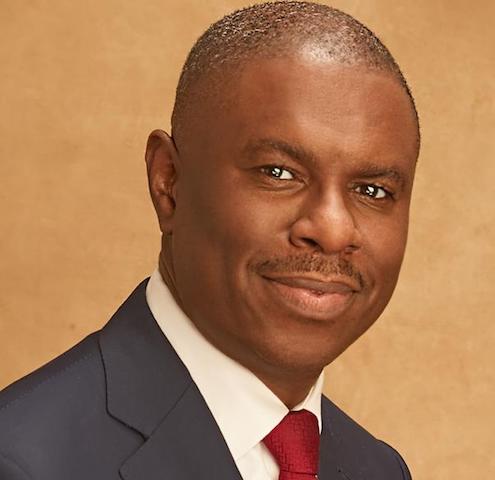COP 27: The real deal in the Red Sea, by Dakuku Peterside
In the holy books of the Abrahamic religions of Christianity and Islam, the Red Sea is symbolic as the place of important events and the beginning of liberation from oppression. Will the city of Sharm El Sheikh, located on the Red Sea, go down in history as an important place in humanity's quest to save our planet from self-destruction and climate justice? Time may be the only answer.
The 2022 United Nations Climate Change Conference or Conference of the Parties to the UNFCCC, more commonly referred to as COP27, ended on a high note on African soil, with some developing country leaders giving each other a high five. But what was the market in the city of Sharm El Sheik, Egypt, on the Red Sea?
Did God draw the Red Sea so that developing nations could pass through the promised land? Is it still Uhuru for developing countries who demand climate change justice given that their contribution to carbon emissions is insignificant, but they bear the brunt of the devastating effect of climate change? Are rich industrial countries ready to commit to reducing carbon emissions and working towards the globally agreed 1.5C temperature limits as the point that will create a sustainable climate environment for our earth?
An important decision made in the Red Sea city was a vague agreement that rich countries should pay the poor for climate-related “loss and damage”. This happened after nearly 30 years of back and forth and sustained pressure from countries in the Global South for climate justice.
There are still many unresolved issues, which can be assaulted or shaped by politics, diplomacy, science and of course economics.
Take, for example, the loss and damage fund, which is the jackpot for sub-Saharan Africa and other vulnerable Red Sea countries, the concerns are when will the transition committee settle? there the finer details? What framework will be put in place for the generation and management of the fund? And who should pay the damages and on what basis since science has different empirical ways of reaching a decision? Who will benefit from the fund and on what basis? Will the fund deter or incentivize rich countries to emit more gas?
The historical trend indicates that these unresolved and unseen contentious issues are the basis of why the fund may not see the light of day or produce the desired results. Therefore, emerging countries should not rejoice too soon, because they have not yet emerged from the Red Sea with substance.
Developing countries, especially countries in sub-Saharan Africa, have left the Red Sea without asking themselves these relevant questions. At the Copenhagen summit in 2009, rich countries pledged to provide $100 billion in annual climate finance to developing countries by 2020 to help them slow climate change and resist its effects. What happened to that promise? Do developing countries have access to funds? The money that has been promised is paltry: around $260 million. And countries still need to agree on who should pay and receive the money. Under the bizarre terms of the UN climate convention, China - after America, the second largest emitter in history - would be considered a "developing country" and would be an appropriate recipient.
Another Pyrrhic victory in the Red Sea for African countries is the failure of COP27 to end the use of fossil fuels, a perceived victory for poor oil-producing countries. Incidentally, it was Russia and Saudi Arabia that led a vigorous campaign against ending the use of fossil fuels. Considering that wealthy Western countries have, over the past two centuries, used more than their fair share of fossil fuels for industrial energy development, which is at the root of the current climate crisis, the pendulum of justice is in favor of the poor oil producing countries. The challenge for Africa is multiple. Our governments have yet to find enough fossil fuels for essential industrialization. The development of alternative energy sources requires resources that most countries do not have. Yet they must now protect their people from the adversities of climate change: flooding, excessive heat, deforestation, and rising energy costs.

A careful observer would have expected that Africa's oil-producing developing countries that need oil and gas revenues to transit would have been at the forefront. What is the implication of supporting oil and gas production for countries like Nigeria? Is it sustainable in the medium and long term? How can Nigeria and other poor oil-producing countries take advantage of this grace period before the inevitable reductions in carbon fuel consumption to trans...

In the holy books of the Abrahamic religions of Christianity and Islam, the Red Sea is symbolic as the place of important events and the beginning of liberation from oppression. Will the city of Sharm El Sheikh, located on the Red Sea, go down in history as an important place in humanity's quest to save our planet from self-destruction and climate justice? Time may be the only answer.
The 2022 United Nations Climate Change Conference or Conference of the Parties to the UNFCCC, more commonly referred to as COP27, ended on a high note on African soil, with some developing country leaders giving each other a high five. But what was the market in the city of Sharm El Sheik, Egypt, on the Red Sea?
Did God draw the Red Sea so that developing nations could pass through the promised land? Is it still Uhuru for developing countries who demand climate change justice given that their contribution to carbon emissions is insignificant, but they bear the brunt of the devastating effect of climate change? Are rich industrial countries ready to commit to reducing carbon emissions and working towards the globally agreed 1.5C temperature limits as the point that will create a sustainable climate environment for our earth?
An important decision made in the Red Sea city was a vague agreement that rich countries should pay the poor for climate-related “loss and damage”. This happened after nearly 30 years of back and forth and sustained pressure from countries in the Global South for climate justice.
There are still many unresolved issues, which can be assaulted or shaped by politics, diplomacy, science and of course economics.
Take, for example, the loss and damage fund, which is the jackpot for sub-Saharan Africa and other vulnerable Red Sea countries, the concerns are when will the transition committee settle? there the finer details? What framework will be put in place for the generation and management of the fund? And who should pay the damages and on what basis since science has different empirical ways of reaching a decision? Who will benefit from the fund and on what basis? Will the fund deter or incentivize rich countries to emit more gas?
The historical trend indicates that these unresolved and unseen contentious issues are the basis of why the fund may not see the light of day or produce the desired results. Therefore, emerging countries should not rejoice too soon, because they have not yet emerged from the Red Sea with substance.
Developing countries, especially countries in sub-Saharan Africa, have left the Red Sea without asking themselves these relevant questions. At the Copenhagen summit in 2009, rich countries pledged to provide $100 billion in annual climate finance to developing countries by 2020 to help them slow climate change and resist its effects. What happened to that promise? Do developing countries have access to funds? The money that has been promised is paltry: around $260 million. And countries still need to agree on who should pay and receive the money. Under the bizarre terms of the UN climate convention, China - after America, the second largest emitter in history - would be considered a "developing country" and would be an appropriate recipient.
Another Pyrrhic victory in the Red Sea for African countries is the failure of COP27 to end the use of fossil fuels, a perceived victory for poor oil-producing countries. Incidentally, it was Russia and Saudi Arabia that led a vigorous campaign against ending the use of fossil fuels. Considering that wealthy Western countries have, over the past two centuries, used more than their fair share of fossil fuels for industrial energy development, which is at the root of the current climate crisis, the pendulum of justice is in favor of the poor oil producing countries. The challenge for Africa is multiple. Our governments have yet to find enough fossil fuels for essential industrialization. The development of alternative energy sources requires resources that most countries do not have. Yet they must now protect their people from the adversities of climate change: flooding, excessive heat, deforestation, and rising energy costs.

A careful observer would have expected that Africa's oil-producing developing countries that need oil and gas revenues to transit would have been at the forefront. What is the implication of supporting oil and gas production for countries like Nigeria? Is it sustainable in the medium and long term? How can Nigeria and other poor oil-producing countries take advantage of this grace period before the inevitable reductions in carbon fuel consumption to trans...
What's Your Reaction?






















